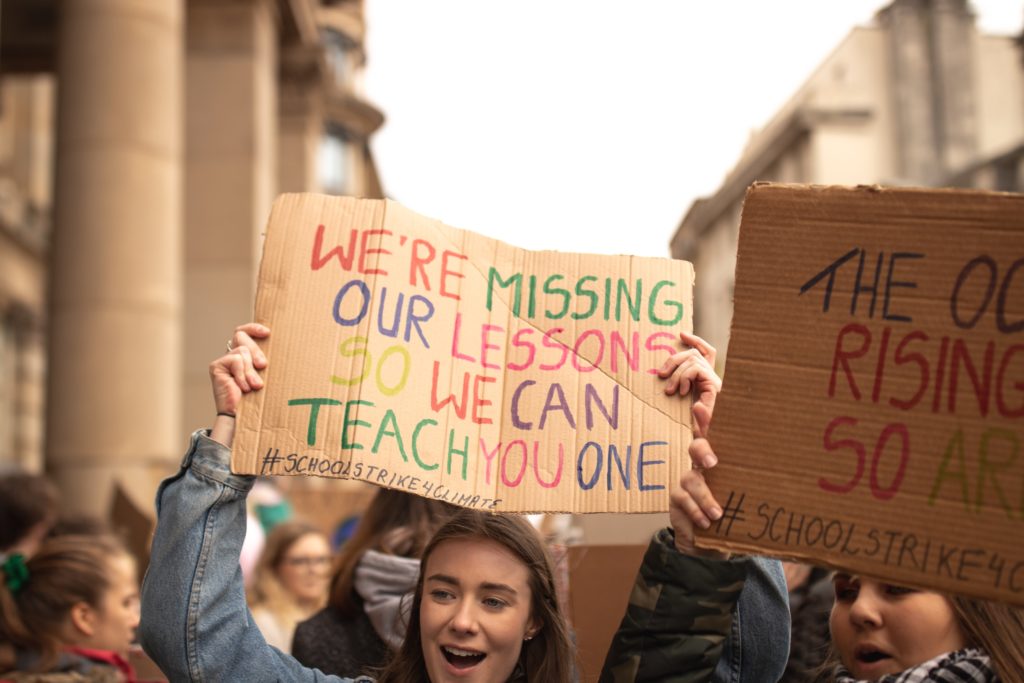A free training program for training CS reps with the skills, tools, and knowledge to delight customers and resolve issues.
In times of global shrinkage and Recession, High-Quality On-Demand Talent, especially the kind sourced through a more purposeful, dynamic, impact-minded and ethical platform, can provide not only greater operational agility and resilience but also continued ESG alignment, measurement and momentum.
How do Small to Medium size companies and organisations meaningfully engage with ESG especially in our current economic climate? Surely resilience and survival are the only order of the day?
In times of recession and great uncertainty, many would contend that ESG investment quickly becomes a luxury in the face of the greatest sustainability challenge staying alive and in the game.
ESGlass Half Empty
In their recent survey and subsequent article entitled ESG: Friend or Foe Forbes highlighted mixed (and occasionally surprising) attitudes and intentions regarding ESG spending and investing with two of their key takeaways being
- 91% of U.S.-based CEOs believe well see a recession in the next year, with 59% planning to pause or reconsider ESG spending
- Only 25% of North American business leaders believe that prioritizing ESG strategies will be extremely important in 10 years
If you are a CEO having to make hard choices it is not hard to find Negative viewpoints to ballast your case.
From Regulatory concerns around greenwashing and Investigations into ESG reporting anomalies to substantial and vocal Critics and Sceptics like Elon Musk, Tariq fancy and of course, HSBCs Stuart kirk with his infamous slide Unsubstantiated, shrill, partisan, self-serving, apocalyptic warnings are ALWAYS wrong, your scepticism will quickly feel in good and rarified company
ESGlass Half Full
But saying that, you also dont need to look that hard to find the equal and opposite point of view. Take PwCs recent article: the race to keep pace with Investor Expectations on ESG. In their report Asset and wealth management revolution 2022: Exponential expectations for ESG, the surge in demand for ESG funds is presented as a global phenomenon, not just a European one:
In the US, for example, more than eight out of ten institutional investors (81%) plan to increase their allocations to ESG products over the next two years, almost on a par with Europe (83.6%). The rise in demand in other regions is close behind, most notably in Asia-Pacificalbeit from a lower base than that of the US or Europe.
So, at a higher order level, given the mixed strengths and weaknesses of the for and against, we sense that ESG isnt going away any time soon.
Which brings us back to the nub of this article.
Can companies who might be otherwise strongly ESG minded, potentially use on demand talent to not only secure a more enlightened talent strategy but also maintain an ESG momentum even through periods of Recession, where their existing ESG focus and investment might become otherwise compromised or redundant?
A Smarter Way to Build Your Global Team
Its a Yes from us
We believe that the answer is, unconditionally, Yes. But we need to be clear about the who, the what and the how.
So lets start with the Who, specifically the nature of the companies and organisations who might consider this approach or reap the greatest benefit from it.

Missions Need Money
Some would venture that the application of an ESG Mission mindset and the predicting of the success and long-term viability of your organisation based upon its impacts across Environmental Social and Governance measures is something that only medium to large-scale enterprises have to consider strategically. BUT the idea that small to medium-sized founder-centric organisations are by their very nature more likely to be ESG-minded in everything they do is to look at smaller orgs with somewhat rose-tinted glasses.
Firstly, to assume that the vast majority of small business owners and founders are not only enlightened and active in their social, environmental and governance beliefs but also capable of operationalising them is potentially wishful thinking, especially in times of recession.
A recent First of its kind survey of businesses from UN-backed SME Climate Hub shows for example that small to medium-sized businesses (SMEs) need additional resources and guidance to reduce their carbon emissions and Environmental impact the E dimension of ESG.
SMEs make up 90% of business worldwide and affect the livelihoods of over 2 billion people and 60% have plans to reduce carbon impact. But. Approximately 70% of SMEs need access to external funds to reduce their emissions faster or at all. However, only one-third of SMEs have been offered a financial incentive to reduce emissions.
As we know, nothing dries up faster in a recession than External funds. So suddenly, when the recession strikes, an SMEs existing and most meaningful ESG What carbon reduction gets either downgraded or permanently put on ice.
BUT
A deep global recession may present SMEs with an opportunity to re-engage with their ESG ambitions most directly on the S and G dimensions - via alternate means - their talent strategy.

A People Powered How
In a recession, small to medium-sized organisations and businesses traditionally struggle to manage headcount due to extreme downward pressure on their bottom line, highly volatile cash flow and increasing pressures on their operation and how they staff it.
This creates the foundation for an alternative ESG How.
As weve pointed out in previous articles, smart organisations are already building a more dynamic, agile and resilient talent strategy to weather the multiple volatilities of increasing growth expectations, economic uncertainty, the new way of working accelerated exponentially by the pandemic and national Lockdown strategies, and, most importantly to long term health and dynamic growth, best talent acquisition.

Securing Gen Z the Impact Generation
On this last talent point - ESG focus and commitments may sink to the bottom of the priority table for many directors and managers struggling to manage through a recession - but not in the minds and hearts of your best future talent. Though everything takes a pounding in a recession, one thing that will probably hold fast, if not strengthen, is the fierce belief and expectations of Gen Z. As a Forbes article in 2021 set out, they heavily over-index towards social justice and sustainability. So there is a clear and present danger for companies, and it is this.
In jettisoning what they see as discretionary investment and focus on the Social and Environmental aspects of ESG as part of their recession resilience strategy, company leaders will also potentially endanger their ability to attract and secure best-in-class Gen Z talent to future-proof their business.
Pedal to the Mettle
The recession will simply accelerate companies need to refine and apply a hybrid talent solution to strengthen their operational resolve.
To not only manage resource budgets but to also create more flexibility and agility, many organisations will need to shrink their fixed full-time employee base while expanding their fluid on-demand talent.
In a best-case scenario, they will manage to do this while maintaining the kind of meaningful sustainability, social and mission-minded credentials most attractive to securing long-term best-quality talent, either fixed or fluid.
This will enable them to pursue existing growth strategies [if at all possible] while managing budget contractions and the kinds of seismic shifts in talent type and capability required to manage the turbulence and volatility of recession.
But that takes more than just reaching for any old freelance talent.

Who Cares Wins
This brings us to the What and the nature of the On Demand freelance talent resources you might use.
To ensure that this new strategic Hybrid Talent Model approach is both optimal and sustainable, the first rule will always be that the On-demand freelance talent it engages is:
- of the highest available quality
- swiftly identifiable and actionable
- fully vetted
- available on the most flexible terms
- administered in a fair, transparent and respectable way
- seamlessly manageable in and out of the organisation
Now there are many platforms that will promise you that. BUT Not in a way that also allows you to sustain your ESG ambitions and maintain the best sustainable and social credentials in the eyes of your best future talent. This is where the daring to care part comes in.
Its all too easy to understand why, in the face of all of these pressures, everyone from a CEO or founder to the Head of People and the HR director might look to global reach platform partners offering a vast volume of talent and who are in a position to buy business through the kind of client discounting that would sink any smaller provider.
BUT. There is nothing in the buy that delivers on the ESG story and future-proofing best talent dimensions in any way whatsoever. In fact, if the platform youre securing the talent from is not wholly transparent and explicitly ethical in its brokerage of the talent it provides, you may well be leaving yourself open to operational and governance vulnerabilities further down the line.
If an ESG Mindset and the matter of attracting the best future talent are important to you, the nature and ethics of the freelance talent platform you partner with is critical
Cue Work For Impacts On Demand Talent Platform an ESG Trojan Horse in times of recession and beyond.
Work For Impact is the only talent platform that allows you to measure and report On Demand Freelance Talent as a measure of your ESG commitment.
Every On-Demand freelancer you engage off our Work For Impact delivers a measurable impact.
Even when the recession robs you of most if not all other ESG investments and ambitions, a more fluid Hybrid Talent model using WFI talent may offer you a more resilient talent strategy AND a measurable ESG commitment.
- Work For Impacts core strategy is founded on an ESG mindset and ethos
- Work For Impacts core offering is custom-built to provide a dynamic impactful and ethical solution to all freelance talent needs
- Work For Impact is the only B Corp-certified On Demand Freelance Talent platform
- Work For Impact invests 6% of Revenue in creating employment opportunities for those from disadvantaged backgrounds
- Work For Impact applies the highest ethical standards in the brokering of its talent.
- Work For Impact attracts a disproportionately large percentage of Purposeful and Mission minded individuals
- Work for Impact has proven credentials in building the highest calibre remote teams to drive operational improvement and sustainable growth even in an economic downturn.
In summary
Its going to get bouncy out there, and every organisation is just going to have to do what it needs to do to get through whats coming. But often, in the eye of the storm lies an opportunity - to elevate what you do, how you do it and why you do it. We think this may well be one of those times
If you would like to explore how Work For Impacts On-Demand Freelance Talent platform can help you to deliver both a more recession-resilient Hybrid Talent Model and meaningful ESG commitment, call the team now and wed be happy to help.
Time to find the right purpose-driven freelancer
The Work for Impact talent pool is the best freelance platform to find freelancers with great values and exceptional skills. To find your next remarkable freelancer, simply sign up, post your project on our site and wait for the high-quality applications to start rolling in.
Collaborate with people you will love working with so much youre tempted to lure them to full-time and deliver great impact together.
Article Sources:
https://www.economist.com/esg-pod
https://www.perenews.com/the-esg-talent-pool/
https://smeclimatehub.org/new-survey-reveals-small-business-barriers-climate-action/
https://www.strategy-business.com/article/The-race-to-keep-pace-with-investor-expectations-on-ESG
https://www.smartrecruiters.com/blog/talent-acquisition-recession/
https://www.telegraph.co.uk/business/sme-library/hybrid/sustainable-small-businesses



